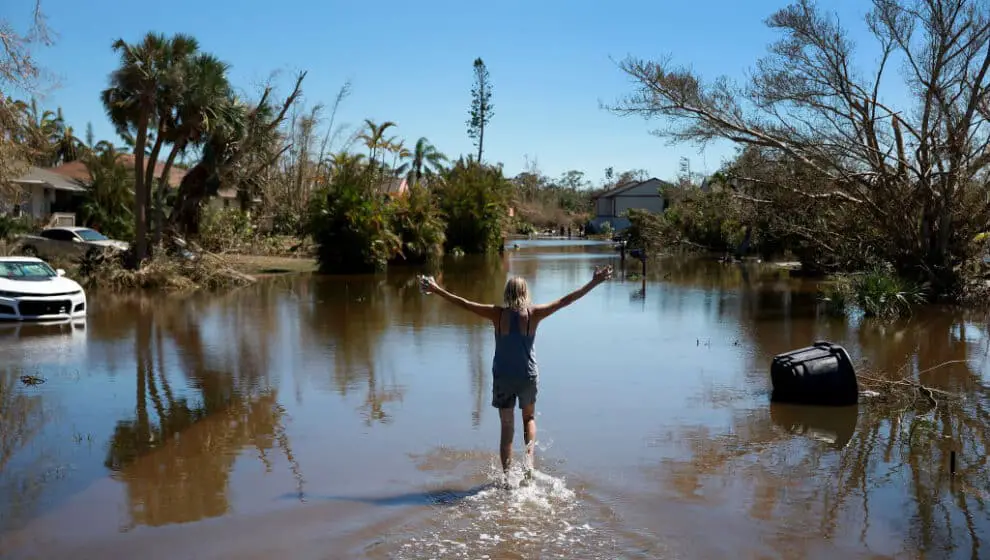After Hurricane Ian pummeled coastal towns in Florida, businesses closed, roads were impassible, and shoppers could not go out—temporarily devastating the economy.
Key Details
- Early estimates say that Florida towns in the path of the storm suffered between $25 billion and $40 billion in uninsured damages.
- Power outages and blocked roads only add to the disaster as immediate relief is prevented from accessing the area. More damage is likely as the storm continues north.
- Economist Greg Daco estimates that Florida’s economic output could be lowered six percentage points in the aftermath of the storm.
- Natural disasters typically cause economic dips in the affected area, but federal aid and reconstruction efforts generally lift the area again a few years after the disaster.
Why it’s news
Hurricane Ian made landfall as a Category 4 hurricane when it hit the west coast of Florida, causing a yet untold amount of damage. The effect on people living in the area is severe, but the effect on businesses is mixed.
Despite the devastating visual effects of the storm, the affected areas will likely continue to suffer for several months as businesses remain closed. Restaurants and entertainment spots will likely not have an audience as residents rebuild their homes. Tourism is likely to decline until beaches are restored.
Some businesses will see a boost as homeowners purchase materials to replace or rebuild what was lost. Many residents will be in need of new vehicles.
Even as Ian continues north, now a category 1 hurricane, some places in Florida are reopening like Disney World and Universal Studios. Walmart and Sam’s Club locations are beginning to open.
Schools and other businesses remain closed. Airports are expected to start reopening as soon as Friday.
Another issue challenging Florida’s reconstruction plans is the troubling lack of construction workers as the labor shortage continues. In addition to short labor supply, the price of building materials is still higher than pre-pandemic numbers.
Though Florida is currently devastated by the storms, the economic impact of natural disasters is typically short-lived, Bloomberg reports. Additionally, since hurricanes are frequent in Florida, the state has an established relief fund.

